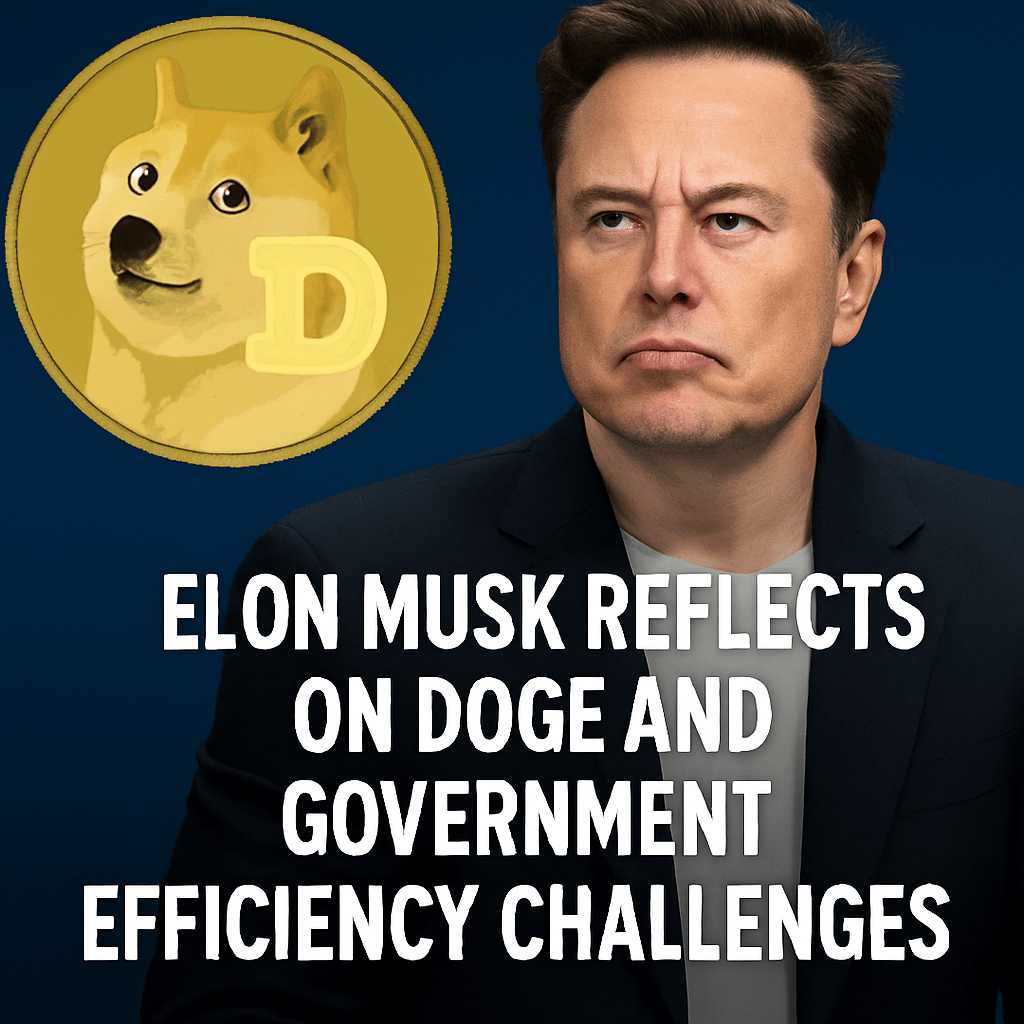Elon Musk Reflects on DOGE and Government Efficiency Challenges

Elon Musk has concluded his tenure with the Department of Government Efficiency (DOGE) on a note that emphasizes both the achievements and the complexities of government work. This development comes amid his claims of having facilitated $160 billion in taxpayer savings, although the journey towards financial efficiency was anything but straightforward.
Final Day Reflections in the Oval Office
During a final press briefing held in the Oval Office, Musk, accompanied by President Donald Trump, touted his achievements while candidly admitting to the arduous nature of reducing federal spending. “It’s mostly just a lot of work, going through really millions of line items and saying, ‘Does this expenditure make sense or does it not make sense?’” Musk remarked, highlighting the meticulous nature of budget analysis. He revealed a bruise near his right eye, attributing it to playtime with his five-year-old son, X, saying it resulted from a playful request for his son to punch him in the face.
Claims of Savings and Ambitious Predictions
Musk’s involvement with the DOGE initiative lasted for approximately 130 days. In that time, he asserted that his efforts were responsible for projected savings of $160 billion for the fiscal years 2025-2026, with a forward-looking prediction that this figure could eventually scale up to $200 billion. Initially, Musk had pledged to save up to $2 trillion during his campaign for governmental roles. However, he has since recalibrated that target down to $1 trillion, expressing confidence that comprehensive waste reductions could eventually meet his original ambitions.
Challenges Faced by the DOGE Initiative
The operational hurdles encountered by DOGE were significant. Musk elaborated that departments often resisted spending cuts, and despite efforts to streamline operations, there were various complexities involved, including pre-existing contracts and long-term financial commitments. He asserted that there were “millions of software licenses” that went unused, which highlighted areas for financial optimization. However, Musk noted that cutting expenditures often drew ire from those who benefited from government funding, complicating the privatization effort.
Criticism from State Leaders
The reaction to Musk’s departure has been mixed. Democratic state leaders have publicly criticized his involvement with DOGE. Illinois Treasurer Michael Frerichs remarked that DOGE “was never about fiscal responsibility,” suggesting that Musk’s tenure more closely aligned with prioritizing the interests of the wealthy over middle-class Americans struggling with economic uncertainty. Similarly, Oregon Treasurer Elizabeth Steiner suggested that Musk’s involvement was a distraction that negatively impacted his primary role at Tesla. Steiner posited that Musk’s diversion to DOGE had resulted in detrimental outcomes, including job losses and reductions in essential services.
Investor Concerns and Future Directions
A group of investors recently communicated their concerns regarding Musk’s divided focus. They dispatched a letter to Tesla Chair Robyn Denholm recommending that any new compensation plan for Musk include a stipulation that he would dedicate a minimum of 40 hours per week solely to Tesla’s management. Musk had previously indicated he would begin reallocating more time to the electric vehicle manufacturer, stating that he would remain available to Trump as an informal advisor going forward.
Looking Ahead: The Future of DOGE
Despite his official departure, both Trump and Musk maintain that the majority of the DOGE team will continue their efforts. Musk mentioned that the initiative was met with varying degrees of resistance, yet he also identified many instances where cost-cutting measures led to no complaints. However, he lamented that DOGE had inadvertently become a “scapegoat” for broader government expenditure cuts, often misattributed to their initiatives, even in unrelated contexts, exemplified by comments about law internships being linked to DOGE’s activities.
Conclusion
As Musk transitions away from DOGE, he leaves behind a legacy characterized by ambitious expenditure reductions and ongoing debates about fiscal responsibility in government operations. His experience highlights the challenges of managing public funds and the intricacies of political maneuvering. The impact of Musk’s tenure will likely be scrutinized as the fiscal landscape evolves, particularly in an era where efficient use of taxpayer money remains critical.
Tesla has yet to respond to requests for comments regarding Musk’s departure and the implications it may have on the automotive sector.